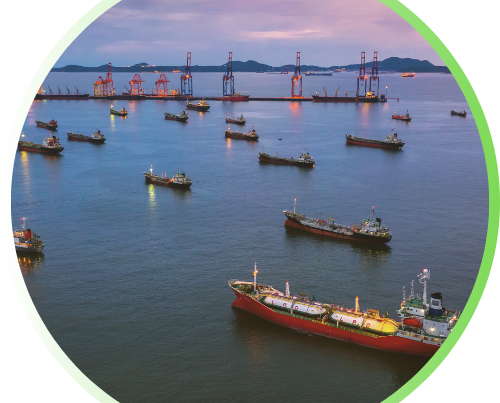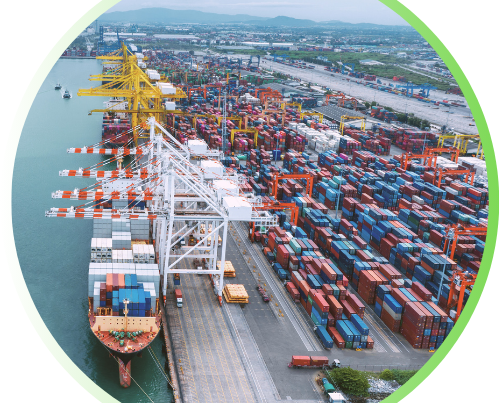Alibaba and French Government Boost SMEs with New Cooperation Program
Alibaba, in collaboration with the French Business Investment Agency, has launched a program to support the growth of small and medium-sized French enterprises (SMEs). This initiative enables easier global promotion of their products, aiming to increase the number of French export companies by 33% by 2030. Alibaba’s B2B platform offers 200 French SMEs access to a global customer base of 47 million buyers. Businesses can acquire a “Gold Supplier” account for premium services, enhancing their digital and international presence as part of France’s “Dare to Export!” plan.


JD Logistics and Evri Forge Strategic Partnership for Enhanced Sino-British Logistics
JD Logistics has partnered with British parcel delivery firm Evri to create a robust Sino-British logistics service. This alliance integrates its logistical strengths to offer comprehensive supply chain solutions for Chinese brands and global customers. JD Logistics will leverage its efficient fulfillment capabilities through overseas and domestic bonded warehouses, enhancing Evri’s UK delivery services. The collaboration aims to develop industry-specific supply chain solutions globally, boosting both companies’ capabilities and supporting the growth of Chinese and foreign brands in their respective markets.
Red Sea Shipping Disruptions Escalate Global Supply Chain Challenges
The Red Sea shipping routes are facing significant disruptions due to Houthi attacks, leading to a diversion of shipping routes and escalating global supply chain issues. These disruptions have resulted in production halts for car manufacturers and potential stock shortages for department stores. Added to the global shipping challenges are the restrictions in the Panama Canal due to drought and pre-Chinese New Year shipment rushes. Companies like Tesla and Volvo face production delays, while retailers like Marks & Spencer anticipate delays in their spring collections. The shipping industry is adjusting its routes, adding thousands of miles and weeks to transit times.


Attack on Russian Fuel Tanker in Red Sea Raises Oil Market Concerns
A Russian fuel tanker was attacked in the Red Sea by the Houthi movement, challenging the previous belief that Russian oil shipments were safe from such incidents. This event could be pivotal for the oil market, as it may necessitate rerouting Russian oil shipments via longer routes, potentially tightening supply and elevating oil prices. West Texas Intermediate and Brent crude oil saw significant price increases following the attack. The incident highlights the risks faced by oil shipments in the Red Sea and the broader impacts on global oil markets and supply chains.
Port of Brunswick Achieves Auto Shipping Record as Savannah Container Traffic Declines
The Port of Brunswick set a new record in 2023 for autos and machinery handling, with a 15.6% increase from 2022, handling 775,565 units. This growth contrasts with the decline in container volumes at the Port of Savannah, which saw a 16% decrease compared to 2022. The Georgia Ports Authority attributes the decline to increased inflation and interest rates slowing consumer spending. Despite this, they plan a $4.2 billion investment over the next decade to enhance capacity and infrastructure, including rail projects and terminal expansions, anticipating a rebound in container volumes.


Global Seafarer Happiness Index Reports Alarming Decline
The latest Seafarers Happiness Index reveals a concerning decline in seafarers’ satisfaction, marking the fourth consecutive quarter of decreasing happiness. The survey, conducted by The Mission to Seafarers, indicates seafarers feel overworked, underappreciated, and disconnected, with concerns about limited shore leave and family contact. The happiness score dropped to 6.36 out of 10 in the last quarter of 2023, with most categories contributing to this decline. The survey highlights issues like inconsistent internet access, social isolation, wage concerns, and security threats, emphasizing the need for improved conditions and well-being support for seafarers.
Red Sea Crisis Leads to Rapid Increase in Ocean Freight Rates
The recent Houthi attacks in the Red Sea have caused a sharp rise in ocean freight rates, surpassing the rate of increase during the early months of the COVID-19 pandemic. According to Xeneta, an ocean freight benchmarking firm, shipping costs from the Far East to Europe surged over 200% in the first 52 days of the crisis. This rapid increase, attributed to rerouting around the Cape of Good Hope, has led to significant disruption in the shipping industry. Despite concerns about carriers maintaining high rates, experts anticipate a potential decrease once capacity issues are resolved.


NY-NJ Port Chief Highlights Delays Without Congestion Amid Suez Diversions
The Port of New York and New Jersey’s chief, Bethann Rooney, advises shippers to factor in an additional two weeks of lead time due to rerouting around southern Africa amid Red Sea attacks. Although this has led to periodic crowding at marine terminals, the port has not experienced major impacts from the longer transit times. Rooney, speaking at a port event in Jersey City, emphasized that the port is managing the situation without significant congestion despite the challenges posed by the diversion of ships from the Suez Canal.

